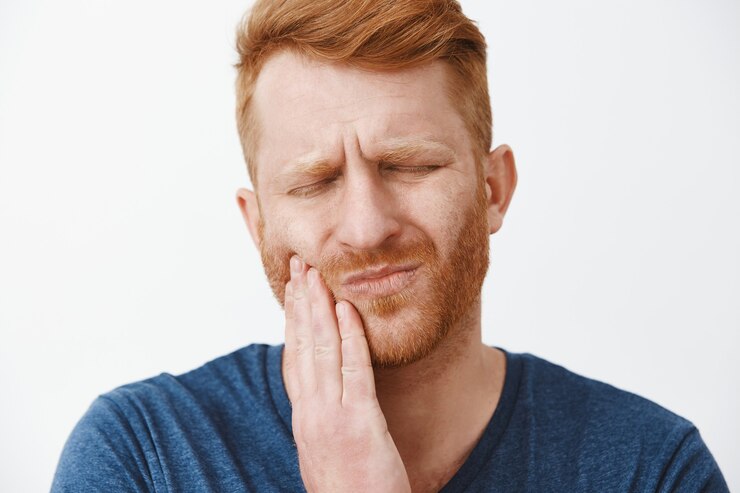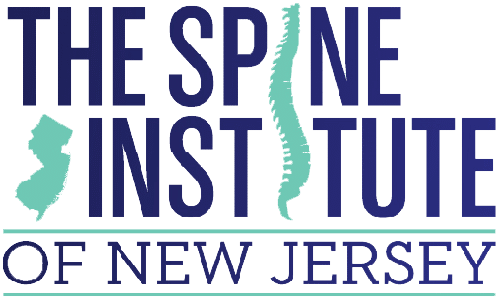TMJ
Get Relief from TMJ with The Spine Institute of New Jersey
Living with TMJ (temporomandibular joint) disorder can impact daily activities and quality of life. TMJ issues often involve jaw discomfort, and limiting activities like speaking and chewing, and can also contribute to related issues such as neck pain, shoulder pain, and even headaches. At The Spine Institute of New Jersey, our non-surgical approach integrates advanced therapies like the decompression table and cold laser to target the core of TMJ pain.
Whether you’re experiencing mild discomfort or severe TMJ symptoms, our healthcare professionals focus on solutions to improve the function and comfort of your jaw.
Don’t let TMJ pain limit your life — take the first step towards relief. Reach out to The Spine Institute of New Jersey today, and discover effective solutions to TMJ disorder that can bring you lasting comfort.
What is TMJ?
Temporomandibular Joint (TMJ) disorder refers to issues affecting the jaw joint, which connects the lower jaw to the skull, allowing essential movements for speaking and eating. This joint acts as a sliding hinge, and its complex structure involves muscles, ligaments, and bones working together. TMJ disorder arises when there is a dysfunction within this joint or its surrounding muscles, often leading to disruptions in jaw movement. Causes of TMJ issues can vary, including factors like jaw misalignment, injury, arthritis, and even prolonged stress on the jaw muscles.
The Spine Institute of New Jersey specializes in non-surgical treatments for TMJ disorder, providing effective, personalized care to address its root causes and promote jaw health. For TMJ relief, contact The Spine Institute of New Jersey.

Common Symptoms of TMJ
Common symptoms of TMJ disorder often include jaw pain or tenderness, difficulty or discomfort while chewing, and a clicking or popping sound when moving the jaw. Some may experience facial pain, headaches, or neck stiffness. In severe cases, jaw movement might be limited, making it difficult to open the mouth fully. Earaches or a sensation of fullness in the ear are also common, as the temporomandibular joint is located near the ear canal, affecting nearby areas.

Risk Factors of TMJ
Risk factors for TMJ disorders include jaw injuries, arthritis, and chronic teeth grinding or clenching (bruxism), which can strain the temporomandibular joint. Poor posture, particularly in the neck and shoulders, may also contribute to misalignment and TMJ pain. Stress can lead to muscle tension in the jaw, increasing risk, while genetic factors, such as joint structure or susceptibility to arthritis, also play a role. Women between 20-40 years old may be more likely to experience TMJ issues.
Recovery Time from TMJ
Recovery time from TMJ disorders varies depending on severity and treatment methods. With non-invasive treatments like physiotherapy and stress management to relieve jaw tension, some people notice improvement within weeks. Advanced treatments, such as splint therapy or cold laser therapy, may take a few months for full relief.
Begin your journey toward pain relief and regain comfort with TMJ solutions from the Spine Institute of New Jersey. Book a consultation.

Aftercare Instructions
Aftercare for TMJ treatment involves gentle jaw exercises to strengthen and relax the muscles. Avoid hard or chewy foods to reduce strain on the joint, and practice good posture to alleviate pressure. Applying a warm compress can help manage pain and support recovery.

Effectiveness
TMJ treatments, including physiotherapy, jaw exercises, and stress reduction techniques, are highly effective for most individuals, offering substantial pain relief and improved jaw function. Customized splints or night guards can further alleviate symptoms, while consistent treatment helps reduce jaw tension, contributing to long-term improvement and minimized discomfort.

Pain
Pain levels during TMJ treatment vary depending on the severity of the condition and the type of therapy used. Gentle treatments like jaw exercises or splints may cause mild, temporary discomfort, whereas more advanced techniques could initially heighten sensitivity. However, most treatments are designed to minimize pain and enhance jaw comfort.
We Are Ready to Meet You
Dr. Harris delivers personalized care that targets the root causes of your health concerns, ensuring a customized treatment plan for sustainable results. At The Spine Institute of New Jersey, we specialize in addressing a range of conditions, including low back pain, knee pain, neck pain, neuropathy, shoulder pain, joint pain, bulging discs, sciatica, carpal tunnel syndrome, dizziness, arthritis, fibromyalgia, headaches, and other chronic ailments.
If you’re ready to achieve lasting pain relief and improve your quality of life, contact The Spine Institute of New Jersey to schedule your consultation. Let us partner with you on your journey to a pain-free daily life.
Our Locations
LYNDHURST OFFICE
Address:
576 Valley Brook Avenue Lyndhurst, NJ 07071
Phone:
(201) 933-5450
Business Hours:
Tuesday: 10:00 am – 7:00 pm
Thursday: 10:00 am – 7:00 pm
PATERSON OFFICE
Address:
375 Broadway Paterson, NJ 07501
Phone:
(973) 925-1881
Business Hours:
Monday: 1:00 pm – 07:00pm
Wednesday: 01:00 pm – 7:00 pm
Friday: 01:00 pm – 7:00 pm
Our Locations
LYNDHURST OFFICE
Address:
576 Valley Brook Avenue Lyndhurst, NJ 07071
Phone:
(201) 933-5450
Fax:
201-933-5452
Business Hours:
Tuesday: 10:00 am – 7:00 pm
Thursday: 10:00 am – 7:00 pm
PATERSON OFFICE
Address:
375 Broadway Paterson, NJ 07501
Phone:
(973) 925-1881
Fax:
973-925-1884
Business Hours:
Monday: 1:00 pm – 07:00pm
Wednesday: 01:00 pm – 7:00 pm
Friday: 01:00 pm – 7:00 pm
DOVER OFFICE
Address:
50 Nelson St Dover NJ 07801
Phone:
(973) 638 2834
Fax:
973-852-3230
Business Hours:
Monday 11-7PM
Wednesday 11-7PM

